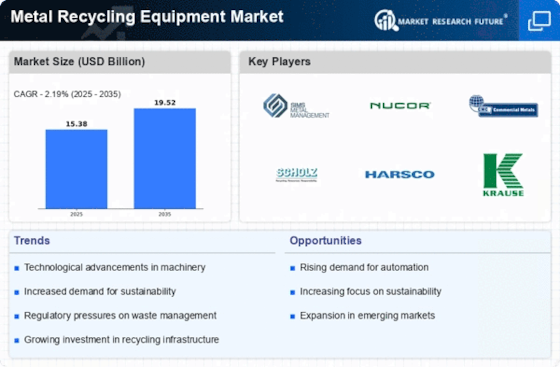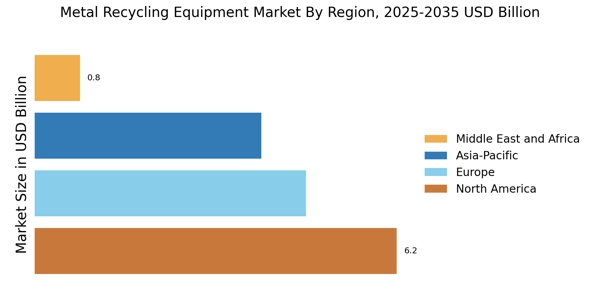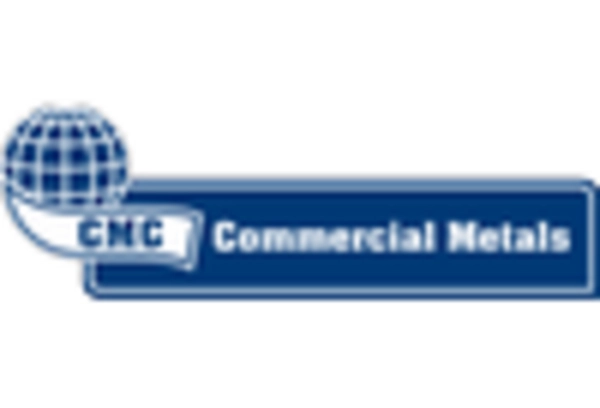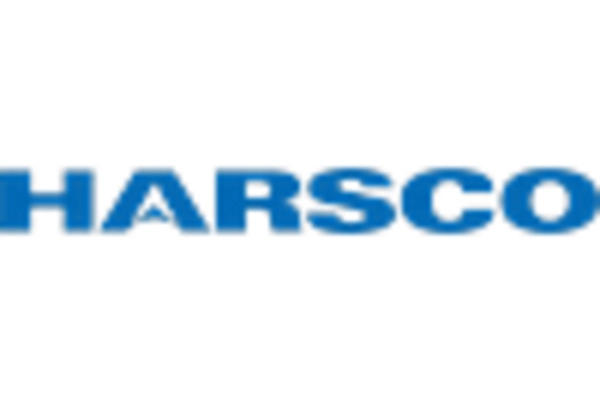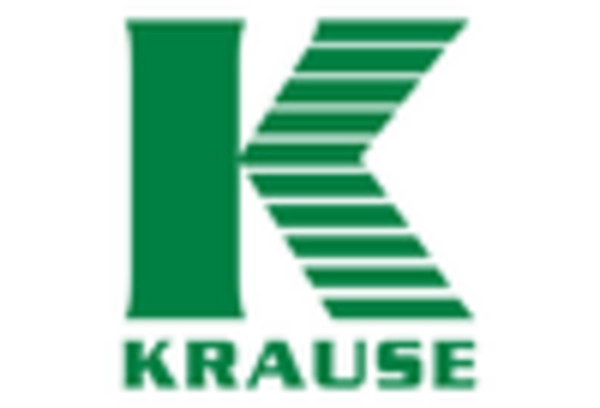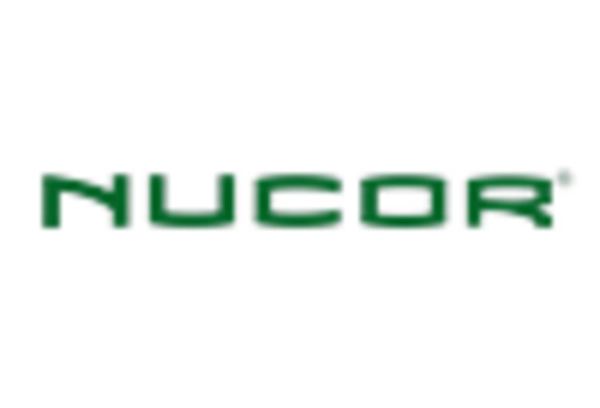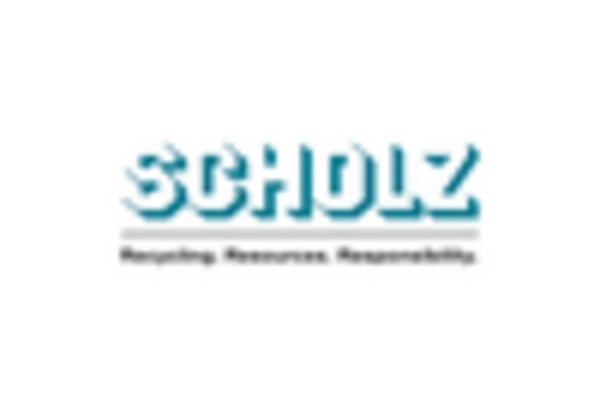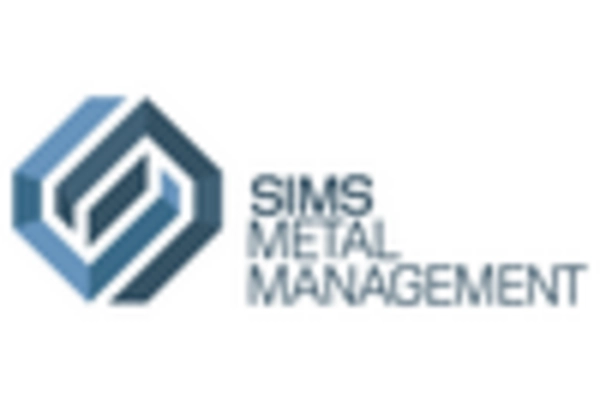Economic Benefits of Recycling
The economic advantages associated with recycling are a compelling driver for the Metal Recycling Equipment Market. Recycling metals not only conserves natural resources but also reduces production costs for manufacturers. In 2025, the cost savings from using recycled materials are projected to reach billions of dollars, making recycling an economically viable option for many industries. Additionally, the recycling sector creates jobs and stimulates local economies, further reinforcing its importance. As businesses recognize the financial benefits of recycling, investments in metal recycling equipment are expected to increase. This trend indicates a positive outlook for the Metal Recycling Equipment Market, as economic incentives align with environmental goals.
Government Regulations and Incentives
Government regulations and incentives significantly influence the Metal Recycling Equipment Market. Many countries are implementing stringent regulations aimed at reducing waste and promoting recycling. For example, extended producer responsibility (EPR) laws require manufacturers to manage the lifecycle of their products, including end-of-life recycling. Such regulations create a favorable environment for the recycling industry, driving investments in recycling equipment. Additionally, financial incentives, such as tax breaks and grants for recycling initiatives, encourage businesses to upgrade their equipment. As regulatory frameworks continue to evolve, the Metal Recycling Equipment Market is expected to expand, with companies seeking compliance and operational efficiency.
Increasing Demand for Recycled Metals
The rising demand for recycled metals is a pivotal driver in the Metal Recycling Equipment Market. As industries increasingly prioritize sustainability, the need for recycled materials has surged. In 2025, the demand for recycled aluminum and steel is projected to grow by approximately 15%, driven by automotive and construction sectors. This trend compels manufacturers to invest in advanced recycling equipment to meet the escalating requirements. Furthermore, the economic benefits of using recycled metals, which are often cheaper than virgin materials, enhance the attractiveness of recycling operations. Consequently, the Metal Recycling Equipment Market is likely to experience robust growth as companies seek to optimize their recycling processes to capitalize on this demand.
Growing Awareness of Environmental Issues
The increasing awareness of environmental issues is a significant driver for the Metal Recycling Equipment Market. As consumers and businesses become more conscious of their ecological footprint, the demand for sustainable practices rises. This shift in consumer behavior is prompting companies to adopt recycling as a core component of their operations. In 2025, it is estimated that over 60% of consumers prefer products made from recycled materials, influencing manufacturers to invest in recycling technologies. This trend not only supports environmental sustainability but also enhances brand reputation. Consequently, the Metal Recycling Equipment Market is likely to benefit from this heightened awareness, as more companies seek to implement effective recycling solutions.
Technological Innovations in Recycling Equipment
Technological advancements play a crucial role in shaping the Metal Recycling Equipment Market. Innovations such as automated sorting systems, advanced shredders, and AI-driven analytics are revolutionizing recycling processes. These technologies enhance efficiency, reduce operational costs, and improve the quality of recycled materials. For instance, the introduction of smart sensors in recycling equipment has been shown to increase sorting accuracy by up to 30%. As these technologies become more accessible, smaller recycling facilities are also adopting them, thereby expanding the market. The continuous evolution of recycling technology suggests that the Metal Recycling Equipment Market will likely witness sustained growth as companies strive to enhance their operational capabilities.


